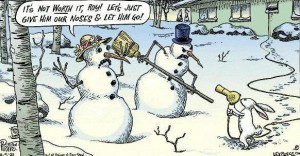Fictional Villain versus Real Life.
I’m having an interesting time at present working on my ‘villain’. Creating a believable villain for fiction seems to require quite a bit more than throwing together some typically bad traits. It requires a real life balance of bad and good. So in real life, what makes a person a hero or a villain? How much comes from ones inner self, from personal destiny or even from mere resolve? Is someone obliged to become a hero or villain, or are heroes and villains moulded over time. How much of being a hero or a villain is voluntary, and how many of these people truly anticipate, or care, how they’ll be interpreted by others?
In a novel and in the movies etc. we tend to classify characters into groups. But such labels can be misleading or severely subjective and variable. It’s never enough to just classify a character or a person. One should take into consideration what the creator of this character has in mind. What circumstances can affect this person’s actions, and even what culture or society this person comes from. Even in real life his or her own beliefs or intentions may be the reason for their actions. Finally, how ones principles, prejudices, and associations may influence the person or character.
I believe you come in contact with villains of varying degrees all the time, in ones day to day life. People who undermine or work in a way they think is necessary to attain a specific goal. Or is that a sociopath? Anyway, there are villains everywhere, whether they’re in real estate, cars, art, or even horses. I’ve known my fair share of horsey villains! Often they exaggerate, twist, and distort something to do with your life to achieve an end result which suits them.
My own life experiences have given me a pretty good handle on villains. In my book at least, I like to think I can understand my villains motivations. Certainly I can understand them more than I can real life villains! My character villain has family issues and harbours lots of resentment, then grasps an opportunity. They say art parallels life and I believe it’s true.
A hero in mythology and folklore, was originally a demigod, their cult being one of the most distinctive features of ancient Greek religion. Later, hero (male) and heroine (female) become characters who, when faced with danger and adversity, display courage and the will for self sacrifice. That is, heroism—for some greater good of all humanity. This definition originally referred to martial courage or excellence but extended to more general moral excellence.
A villain is an “evil” character in a story, whether a historical narrative or, especially, a work of fiction. The villain usually is the antagonist, the character who tends to have a negative effect on other characters. I read in the Random House Unabridged Dictionary that villain is defined as “a cruelly malicious person who is involved in or devoted to wickedness or crime; scoundrel; or a character in a play, novel, or the like, who constitutes an important evil agency in the plot”.

Leave a Reply